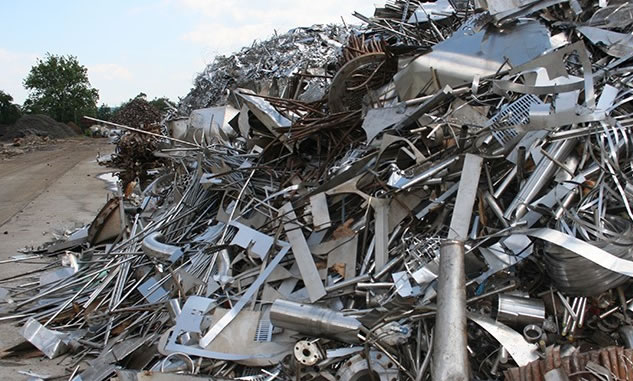

JUL 11, 2023
Steel is an invaluable material used across industries, known for its strength, durability, and adaptability. Its composition and properties vary significantly between types of steel used for specific applications. This guide will explore this diverse world by diving deep into this metal's classification, identification, and key variations. No matter whether you are a scrap metal buyer interested in scrap metal buying/selling/trading or simply exploring steel, this article by RCM Recycling offers valuable insight.
Ferrous metals contain iron as their primary constituent and are known for their remarkable strength and magnetic properties. In contrast, non-ferrous ones don't contain this element, making them more corrosion resistant, ideal for applications where weight or conductivity play key roles in design or functionality.
Iron is the backbone of steel production. Therefore, identifying iron can be essential in identifying its type. One easy way to do this is with a spark test: strike iron against hard surfaces such as grinding wheels to observe its sparks emitted - these typically display bright, quick sparks with branching out patterns similar to what would be found with steel sparks.
A spark test is an invaluable method for identifying steel types. When conducting one, observe the sparks generated as you strike it against a grinding wheel - their shape, color, and length could explain its composition. Though this approach provides general identification capabilities, for accurate identification, it should always be undertaken in consultation with experienced scrap metal buyers or scrap metal companies.
Recognizing steel requires an in-depth study of its composition and properties. Steel is composed primarily of iron and carbon; other elements may be added for additional strengths or properties like corrosion resistance or increased strength. Carbon steel, the most popular variety used today, usually ranges between 0.3%-2.1% in carbon content. At the same time, manganese silicon sulfur is often added at different proportions to give specific properties to this metal alloy.
Let's discover various kinds of steel available for scrap metal recycling, each designed for specific uses. Please remember that this list needs to be more comprehensive; more options exist than what has been listed here.
These are just a few examples of the many steel varieties available today, each serving its purpose based on factors like strength requirements, environmental conditions, and cost considerations.
At RCM Recycling, we specialize in scrap metal recycling and are here to assist you with understanding various types of steel. With our expertise, we can guide you through identifying and sorting various metals - steel included - to maximize their recycling potential. Our knowledgeable team of professionals understands all nuances associated with different steel types to offer accurate assessments and fair valuations for scrap metal. Whether you are an individual scrap buyer or company recycling efforts with RCM, our comprehensive services ensure valuable resources are efficiently recovered for reuse - whatever they might be.